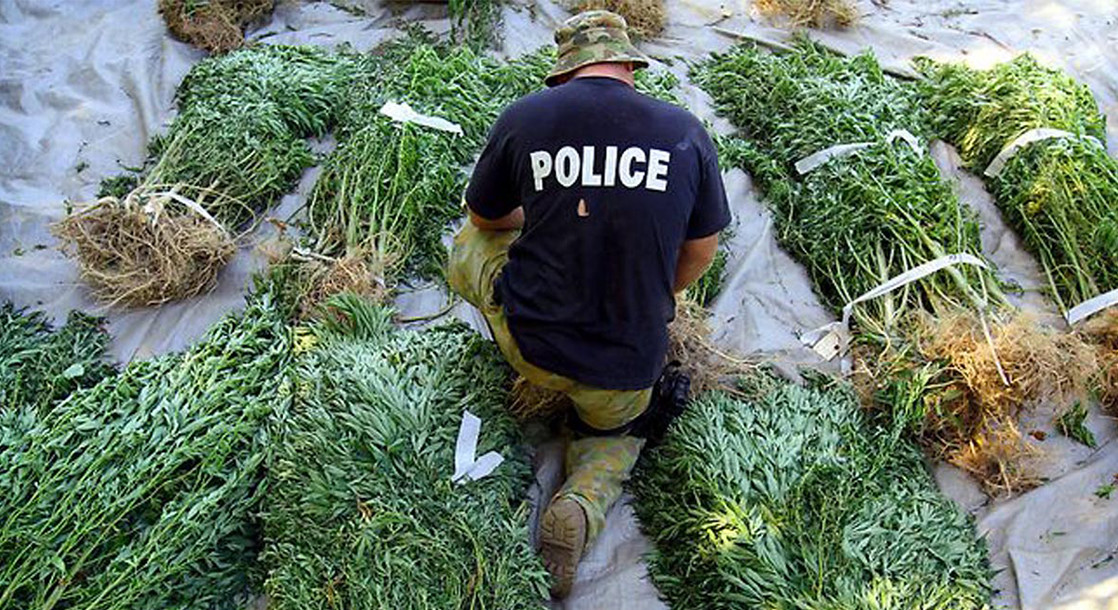Lead image via Hudson Institute
A friendly reminder: if you work for the Feds, medical marijuana use — even if legal in your state — is still cause enough to lose your job. In a statement published in the Federal Register this week, the U.S. Department of Transportation clarified that even cannabis patients have no excuse for failing a drug test.
"It has always been the intent of this program to follow the [Controlled Substances Act] regarding what constitutes a legally valid prescription. The term 'prescription' has become more loosely used in recent years," writes Transportation Secretary Elaine Chao. "Some state laws allowing marijuana use the term 'prescription,' [however most use "recommendation" because cannabis isn't FDA-approved] even though a recommendation for someone to use marijuana under state law is not a prescription consistent with the Controlled Substance Act."
Point being, especially since drug tests can show the difference between THC ingested from cannabis and THC ingested from marinol (a synthetic pharmaceutical), federal transportation employees have no way around it. "Regardless of any state 'medical marijuana' laws, there cannot be a legally valid prescription for marijuana, since it remains a Schedule I substance under the CSA," Chao emphasizes.
This "news," however, isn't all too surprising, says Megan Vaniman, an employment attorney at Harris Bricken, an international law firm with an emphasis on cannabis. The federal clarification is pretty consistent even with what some states have been doing, she adds. For instance, though Oregon has an adult use marijuana program, testing positive for cannabis — even if you have a medical recommendation and only use cannabis at home — is grounds for discharging employees. Some states like Nevada or Arizona, however, have passed specific legislation that prohibit employers from terminating employees for off-work use of medical marijuana. And a case in Massachusetts this year ruled that firing someone for off-site medical cannabis use violates anti-discrimination policy.
Yet regardless of state, such protections still wouldn't apply to federal employees, Vaniman says. In the workplace, they're subject only to federal law. But there is some logic behind this, especially for federal employees who operate vehicles or heavy machinery. "I think we can all agree we don't want our federal employees out there driving around high," says Vaniman.
But all in all, the DOT's recent statement stands in opposition to federal guidelines like the Cole Memorandum that essentially give an okay to state-compliant cannabis use, possession, and business. The essence of the Cole Memo essentially reads that "we're choosing not to pay attention to lawful marijuana activity," while the message of the DOT's statement is, "actually, we are paying attention."
"The latest statements coming out of the DOT in regard to medical marijuana are just another sign of how out of touch with scientific research our public policy is," says Erik Altieri, executive director of the National Organization for the Reform of Marijuana Laws (NORML). "While no individual should ever drive impaired under any circumstances, it ought to be stressed that neither the enactment of medical cannabis regulations nor the enactment of adult-use regulations is associated with an uptick in motor vehicle fatalities or overall crashes."
Since THC stays in the body's system for several weeks after use, the simple appearance of these metabolites in a drug test is not enough to prove impairment on the job, he adds. "Patients and responsible consumers should not be punished for the responsible, state-legal cannabis use conducted in their personal off-work hours. We need to pursue true impairment testing to ensure inebriated drivers are kept off the road, but we must also cease criminalizing and penalizing individuals based solely on the content of their urine.”











